41 Top Robert Creeley Quotes That Will Positively Influence Your Line Of Thought
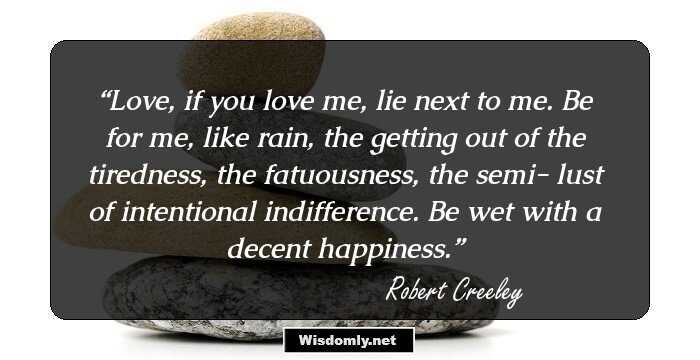
Love, if you love me, lie next to me. Be for me, like rain, the getting out of the tiredness, the fatuousness, the semi- lust of intentional indifference. Be wet with a decent happiness.
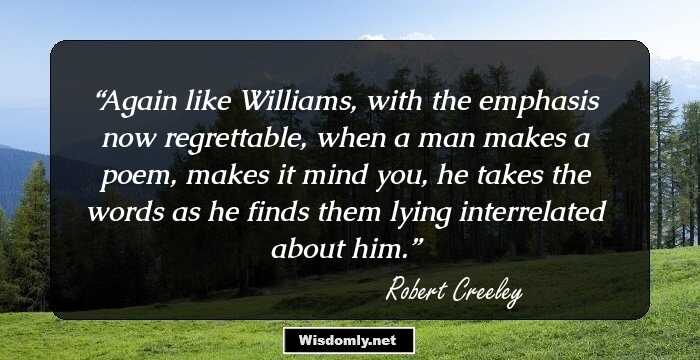
Again like Williams, with the emphasis now regrettable, when a man makes a poem, makes it mind you, he takes the words as he finds them lying interrelated about him.
It's the classic story form. All staying equal, or proving equal, or being equal, this will all continue, and the next time around, we'll move on to see what happened to Harry after he dove in the river, or who his friend John really was, and so on.
There are a lot of editorials that have nothing to do with anything like that. But I was just thinking of that sense of prose as being very responsible and perceptive, thoughtful, intimate, and contriving a quote statement.
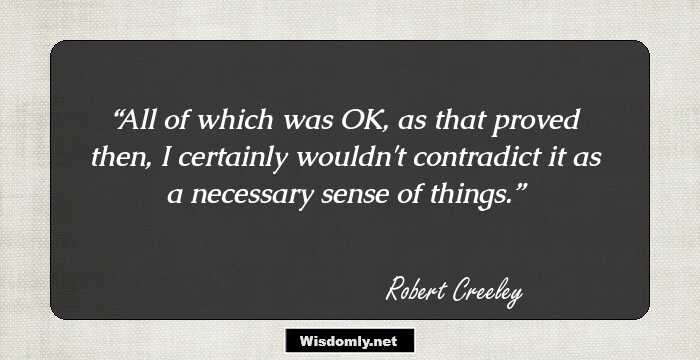
All of which was OK, as that proved then, I certainly wouldn't contradict it as a necessary sense of things.
And what's fascinating in The Ten Thousand Things is that although there's time, an inexorable time of the three generations of lives, actively present, but place is the time, time doesn't really have to do with simply the human experience of it.

Don't name it, as they say, because instantly you offer it to this peculiar authority.
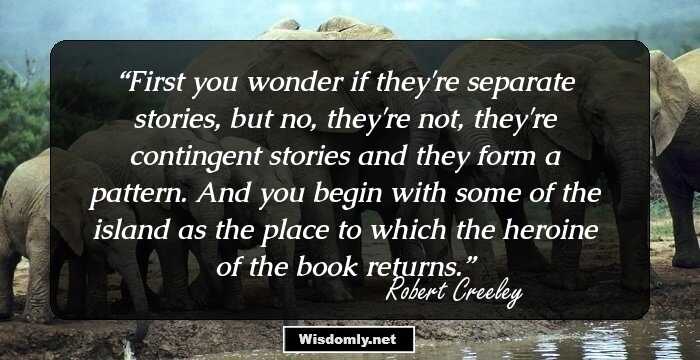
First you wonder if they're separate stories, but no, they're not, they're contingent stories and they form a pattern. And you begin with some of the island as the place to which the heroine of the book returns.
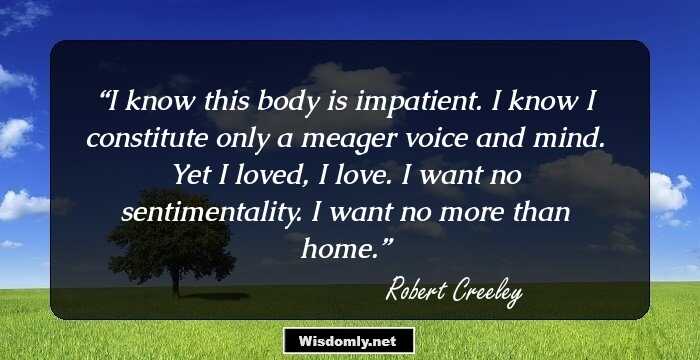
I know this body is impatient. I know I constitute only a meager voice and mind. Yet I loved, I love. I want no sentimentality. I want no more than home.
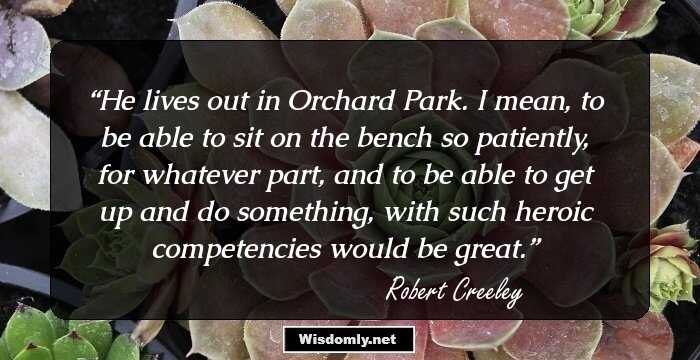
He lives out in Orchard Park. I mean, to be able to sit on the bench so patiently, for whatever part, and to be able to get up and do something, with such heroic competencies would be great.
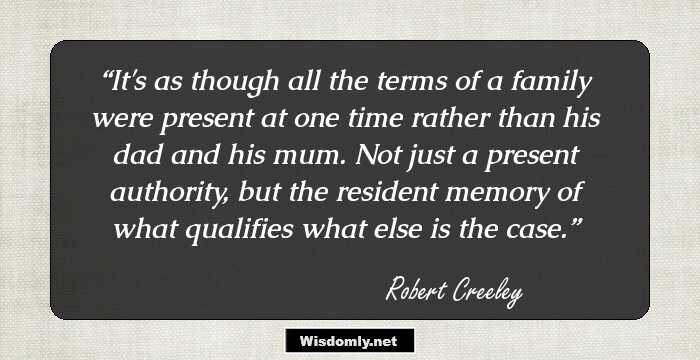
It's as though all the terms of a family were present at one time rather than his dad and his mum. Not just a present authority, but the resident memory of what qualifies what else is the case.
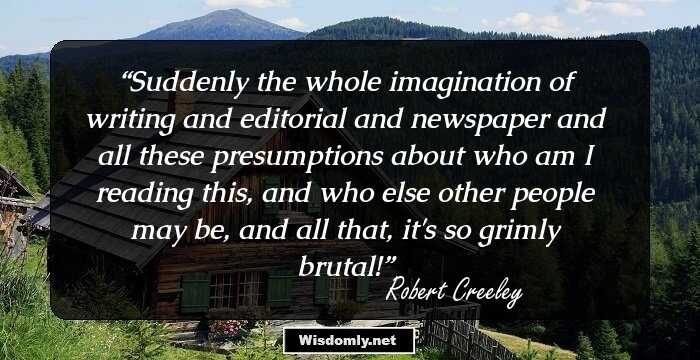
Suddenly the whole imagination of writing and editorial and newspaper and all these presumptions about who am I reading this, and who else other people may be, and all that, it's so grimly brutal!
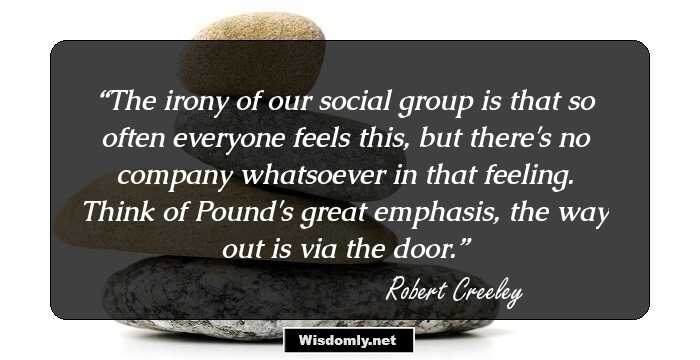
The irony of our social group is that so often everyone feels this, but there's no company whatsoever in that feeling. Think of Pound's great emphasis, the way out is via the door.
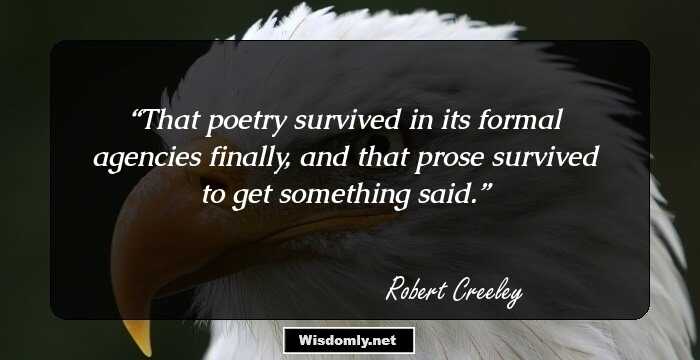
That poetry survived in its formal agencies finally, and that prose survived to get something said.
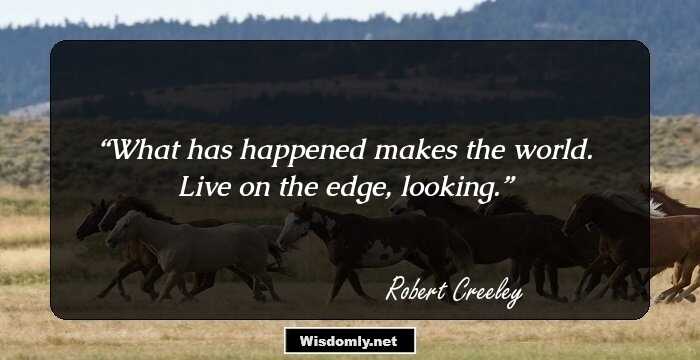
What has happened makes the world. Live on the edge, looking.
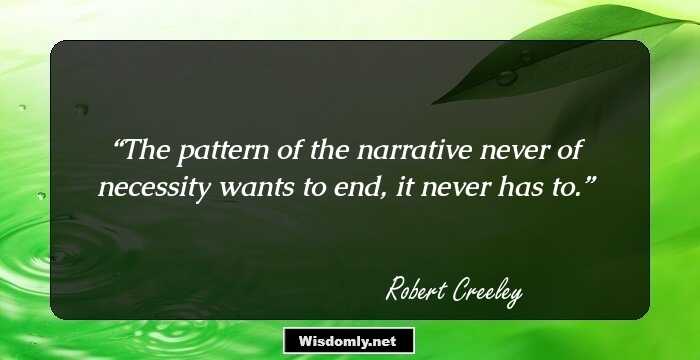
The pattern of the narrative never of necessity wants to end, it never has to.
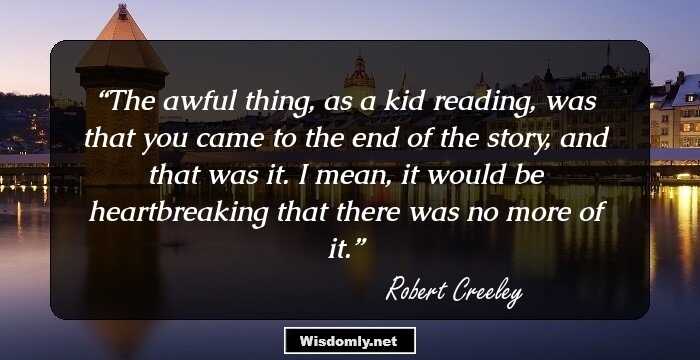
The awful thing, as a kid reading, was that you came to the end of the story, and that was it. I mean, it would be heartbreaking that there was no more of it.
You were saying that once when visiting Yale, you were struck that unlike Pound, Williams's thinking was volatile, I mean, did not stay locked into a pattern of concepts that then defined his subsequent necessary behavior, whereas Pound did.
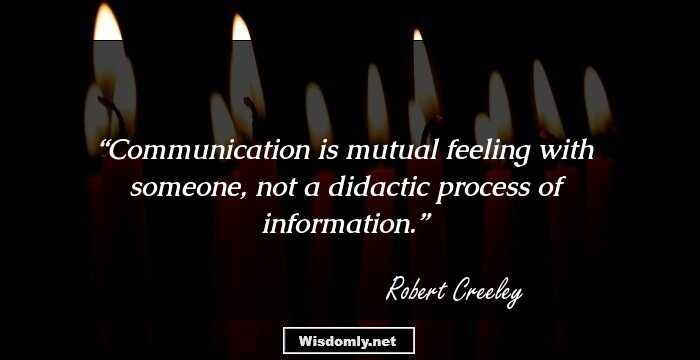
Communication is mutual feeling with someone, not a didactic process of information.
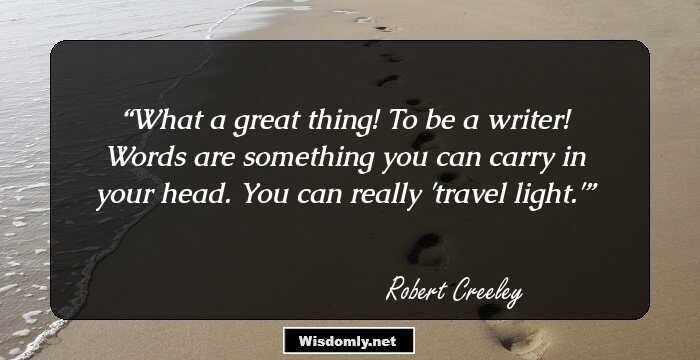
What a great thing! To be a writer! Words are something you can carry in your head. You can really 'travel light.'
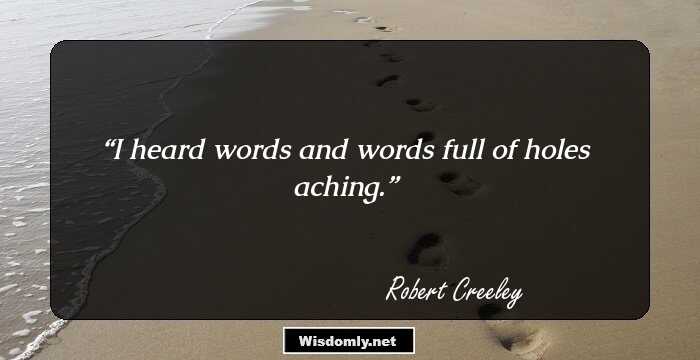
I heard words and words full of holes aching.
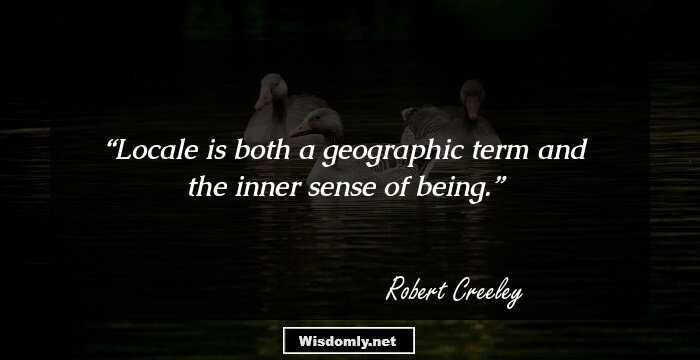
Locale is both a geographic term and the inner sense of being.
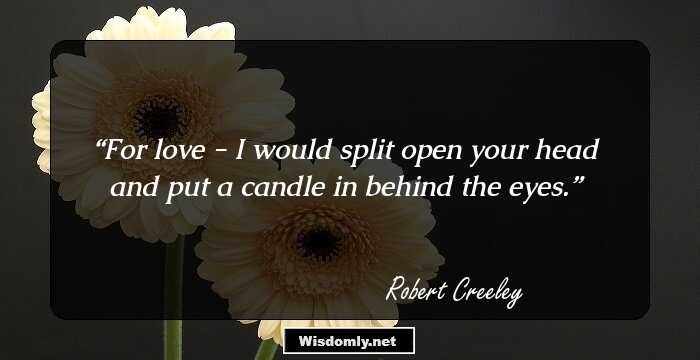
For love - I would split open your head and put a candle in behind the eyes.
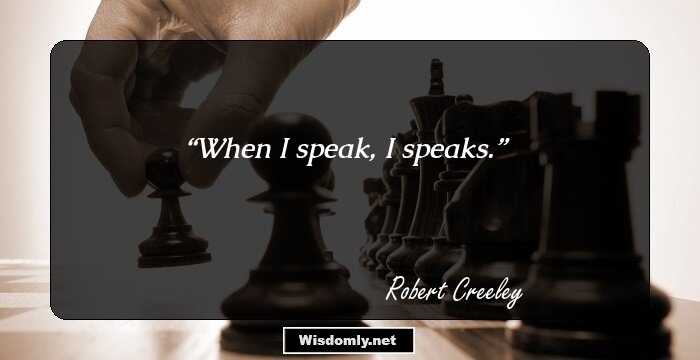
When I speak, I speaks.
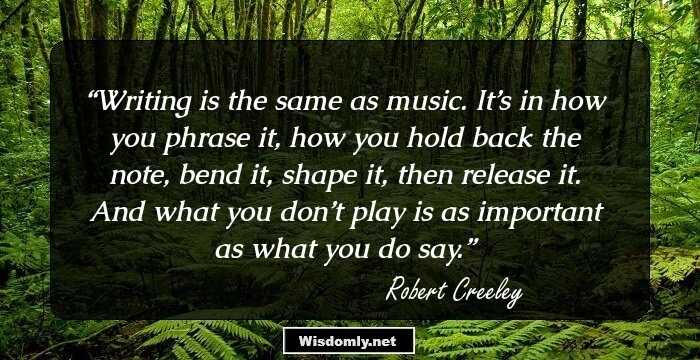
Writing is the same as music. It’s in how you phrase it, how you hold back the note, bend it, shape it, then release it. And what you don’t play is as important as what you do say.
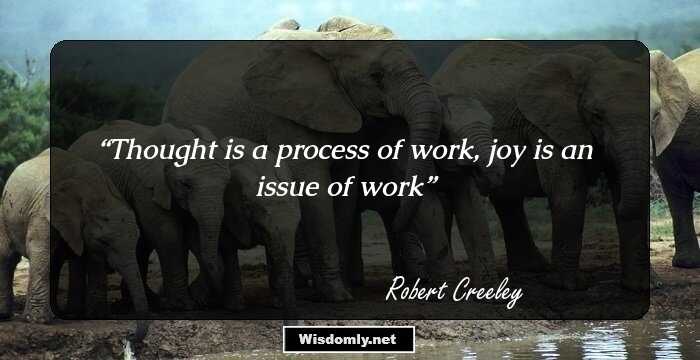
Thought is a process of work, joy is an issue of work
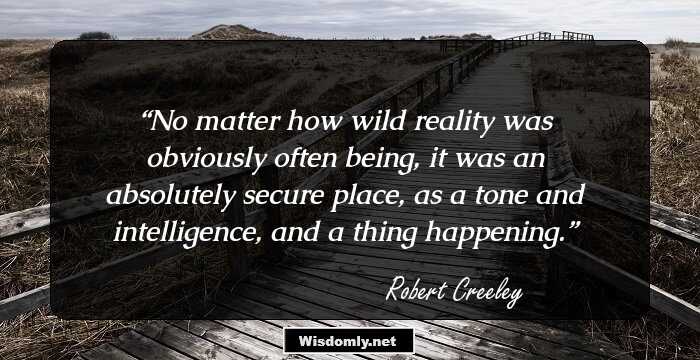
No matter how wild reality was obviously often being, it was an absolutely secure place, as a tone and intelligence, and a thing happening.
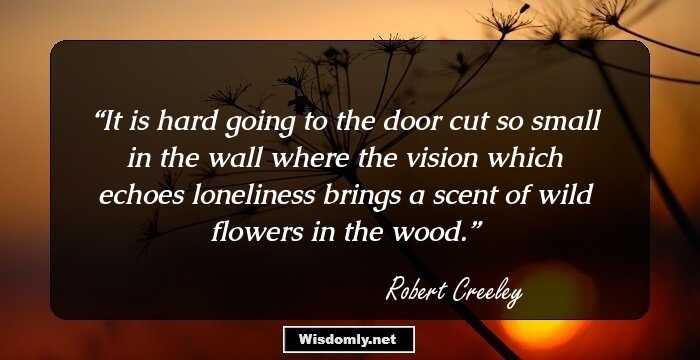
It is hard going to the door cut so small in the wall where the vision which echoes loneliness brings a scent of wild flowers in the wood.
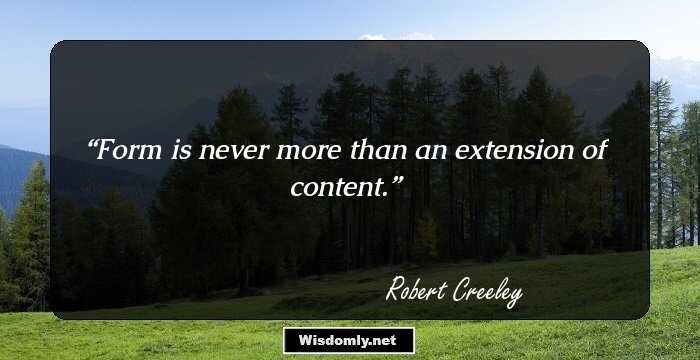
Form is never more than an extension of content.
I did however used to think, you know, in the woods walking, and as a kid playing the the woods, that there was a kind of immanence there - that woods, a places of that order, had a sense, a kind of presence, that you could feel; that there was something peculiarly, physically present, a feeling of place almost conscious ... like God. It evoked that.










